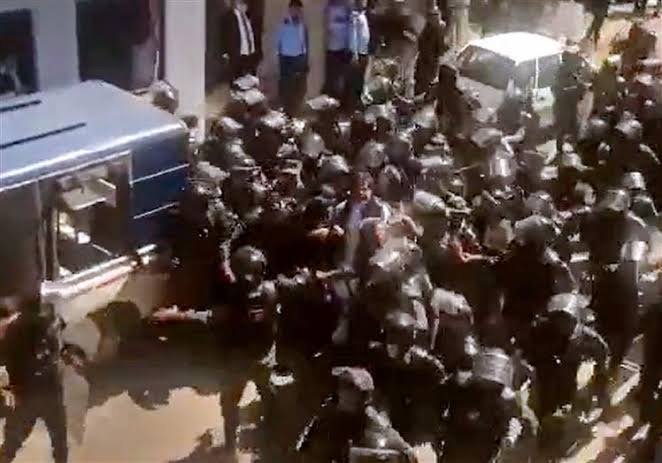On Tuesday, former Pakistani Prime Minister and chairman of the Pakistan Tehreek-e-Insaf (PTI) party, Imran Khan, was arrested by paramilitary Rangers at the Islamabad High Court while attending a hearing for a corruption case. The arrest came just a day after Khan had accused the country’s powerful army of plotting to assassinate him.
Video footage captured the paramilitary Rangers forcefully taking Khan and pushing him into a prison van. The Rangers, who typically work under the Interior Ministry, are known to have their leadership comprising of army officers on secondment.
The PTI chairman’s arrest came as a surprise to many, as he is a vocal critic of corruption and has been leading anti-corruption campaigns in the country. In addition to that, Khan has also been a strong advocate of democracy and free speech in Pakistan.
The corruption case against Khan dates back to 2014, when he was accused of using public funds to construct a private residence. Khan has denied the allegations, calling them politically motivated and a part of a larger conspiracy to undermine his political career.
In recent weeks, tensions have been high in Pakistan, with the country facing several internal and external challenges, including a struggling economy and ongoing conflict with India over the disputed region of Kashmir.
Khan’s arrest has sparked protests and condemnation from his supporters, who claim that the move is politically motivated and an attempt to silence the opposition.
The Pakistani government has defended Khan’s arrest, stating that it was carried out according to due process and in accordance with the law. The government has also urged the public to remain calm and peaceful in the wake of the arrest.
The situation in Pakistan remains tense, with many fearing that Khan’s arrest could lead to further political instability and unrest in the country.


